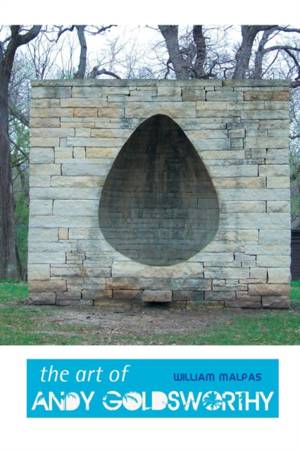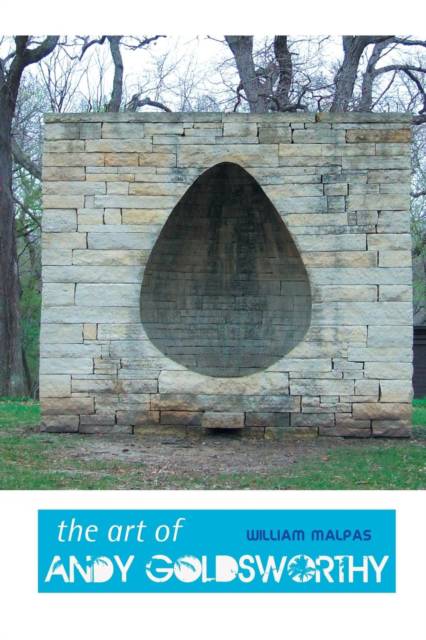
- Retrait gratuit dans votre magasin Club
- 7.000.000 titres dans notre catalogue
- Payer en toute sécurité
- Toujours un magasin près de chez vous
- Retrait gratuit dans votre magasin Club
- 7.000.0000 titres dans notre catalogue
- Payer en toute sécurité
- Toujours un magasin près de chez vous
Description
THE ART OF ANDY GOLDSWORTHY
By William Malpas
This is the most comprehensive and detailed study of British artist Andy Goldsworthy, and is the only full-length exploration of Goldsworthy and his art available anywhere. The book has been completely rewritten and brought up to date for this new edition.
Andy Goldsworthy makes land or earth art out of, among other materials, stacks of rocks, or stalks tied together, or mud thrown into rivers or poppy petals wrapped around boulders. His art is a sensitive, intuitive response to nature, light, time, growth, the seasons and the earth.
REVISED AND UPDATED, WITH NEW ILLUSTRATIONS
Fully illustrated, with a revised text. Bibliography and notes. 348pp. ISBN 9781861717399. www.crmoon.com
EXTRACT FROM THE CHAPTER ON GOLDSWORTHY'S LEAFWORKS
It is the leafworks that are the most colourful of Andy Goldsworthy's sculptures. What the leaf sculptures show is how beautiful the colours of nature are: Goldsworthy shows the viewer these subtle colours by contrasting one leaf with another. Maple patch grouped the red/ orange/ yellow of Japanese maple leaves together; Poppy leaves contrasted the red poppy leaves against the mid-green of an elderberry bush; a Stone Wood sculpture of 1992 consisted of poppy leaves wrapped around a hazel branch, the red constrasting vividly with the wet green leaves; Dock Leaves interwove red leaves in green grass stalks. Two sycamore leafworks of 1980 and 1981 are very simple: a leaf black from cow shit is placed against pale Autumn leaves; another leaf, bleached white, is set down on a bed of dark leaves. He pins together two colours of sycamore leaves (sycamore is a favourite Goldsworthy medium) in Sycamore leaf sections (1988), and hangs the line of leaves from a tree. Shot with the sun behind them, the photograph of the leaves shows them glowing green and gold, the two classic colours of poetry and alchemy. The Autumnal colours of course connote nostalgia, decadence, sensuality, Romanticism, time passing, the decay of the year, and so on, all those things John Keats wrote about in his 'Ode: To Autumn', and in a billion other poets' art. Goldsworthy's aim in the leaf pieces, though, draws attention to the fragility and delicacy of leaves, as well as their strength and function. A leaf, after all, is a complex biological factory, so the natural scientists say. 'There is a whole world in a single leaf', remarked Goldsworthy. Goldsworthy's leafworks do not have a scientific agenda. Rather, they celebrate the presence of leaves, the being-in-the-world of leaves, so to speak.
Spécifications
Parties prenantes
- Auteur(s) :
- Editeur:
Contenu
- Nombre de pages :
- 348
- Langue:
- Anglais
- Collection :
Caractéristiques
- EAN:
- 9781861717399
- Date de parution :
- 12-11-18
- Format:
- Livre broché
- Format numérique:
- Trade paperback (VS)
- Dimensions :
- 156 mm x 234 mm
- Poids :
- 485 g

Les avis
Nous publions uniquement les avis qui respectent les conditions requises. Consultez nos conditions pour les avis.






